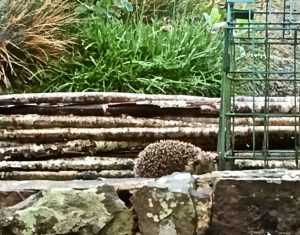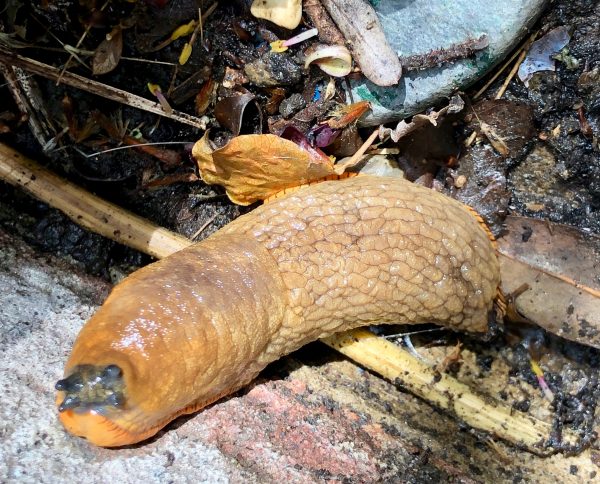Helping Hands for Hedgehogs

Hedgehog numbers have declined in recent years, perhaps by as much as 50% in areas such as East Anglia. Though they are not doing well anywhere (with the possible exception of Uist in the Hebrides), there is a suggestion that urban hedgehogs are doing somewhat better than their country cousins. The fall in numbers in the country is probably associated with the loss of pasture and increase in arable farming; flooding that has occurred in some years will not have helped their situation. In towns, the hedgehogs seem to prefer cemeteries, allotments, playing fields and large gardens.
Many large gardens have been lost to new housing in recent years, and the houses often come with decking or patios which are not good hunting grounds for beetles, worms, slugs etc, and these form much of a hedgehog’s diet. Hedgehogs can range over several gardens and may cover about half a mile a night.
 It’s not all going the urban hedgehogs way though. In recent times, we have had ‘warm’ winters that deprive hedgehogs of a ‘clear cut’ signal to start hibernation or to stay sleeping. They should hibernate from November and emerge again in April, but many are active in the winter months and do not lay down enough fat to keep them going through the lean times.
It’s not all going the urban hedgehogs way though. In recent times, we have had ‘warm’ winters that deprive hedgehogs of a ‘clear cut’ signal to start hibernation or to stay sleeping. They should hibernate from November and emerge again in April, but many are active in the winter months and do not lay down enough fat to keep them going through the lean times.
Another factor that may be affecting them is the use of rodenticides – (rat poisons, such as warfarin) as hedgehogs eat the bait too. They may also kill diseased rodents or scavenge their bodies, thus ingesting chemicals. Because hedgehogs eat so many things, they probably end up with a strange cocktail of insecticides and slug pellets etc from our gardens.

You can give a hedgehog a ‘helping hand’ by checking that your garden is ‘hedgehog friendly’ with a few simple measures. For example, make sure they can come and go to adjacent gardens easily, and ensure that there are no empty food cans or plastic pots (on which they can lacerate themselves or get stuck).
For more information on hedgehog friendly gardens visit :https://thehedgehog.co.uk/how-to-help-hedgehogs/dangers/
OR read a very detailed account of hedgehog life here : https://diygarden.co.uk/wildlife/ultimate-guide-to-hedgehogs/
Comments are closed for this post.

[…] The People’s Trust for Endangered Species (PTES). the British Hedgehog Preservation Society and Dr Paul Bright (Royal Holloway) have been studying the hedgehog population to see how it is coping with changes in farming practices, urban developments etc. The general conclusion is that the numbers of this mammal are declining – see the woodland blog. […]
Molewatch | The Woodlands.co.uk Blog
5 July, 2011